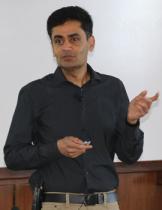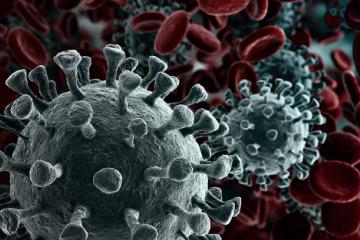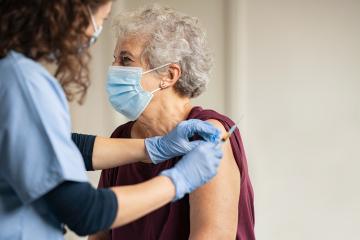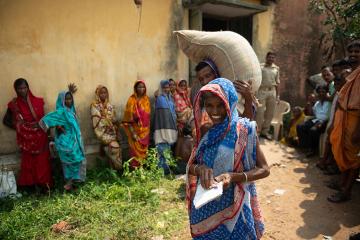
2022 Annual Letter from the Global Executive Director
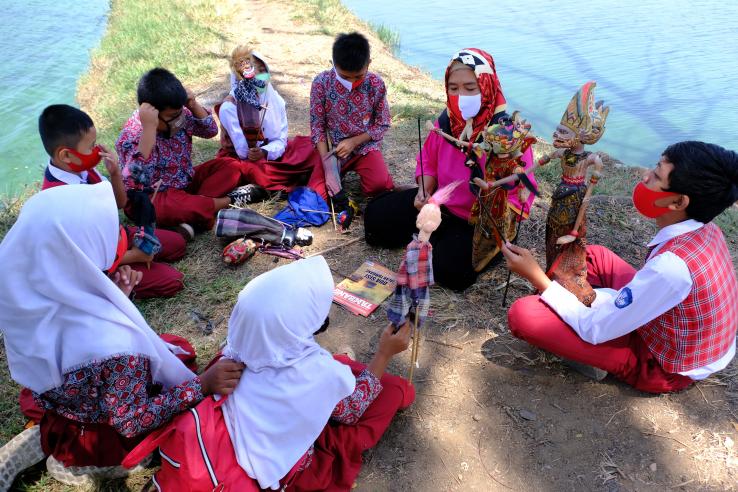
This time last year, we faced an uncertain future in the midst of an unchecked global pandemic. Unfortunately, some of our worst fears did come true: Delta raged in 2021, and many of the countries in which we work and have regional offices were particularly hard hit. Many of J-PAL’s staff, partners, and their families worldwide were again directly and deeply affected. Our hearts go out to those who have lost loved ones to this terrible tragedy, and we wish a speedy recovery for those who directly faced the burden of this disease.
As vaccines rolled out, field research began to resume and demand soared for evidence-based policy solutions to help people recover from the unprecedented economic shocks of Covid. Job losses and health crises have caused millions to experience poverty for the first time, making it more essential now than ever to ensure that people have access to reliable, effective social safety nets. Meanwhile, climate change looms over pandemic recovery efforts, reminding us that urgent action is needed to prevent a climate catastrophe.
Much of the research generated or applied during this difficult time has centered around deploying innovations to spur pandemic adaptation, including how to keep students learning, workers employed, and people social distancing. This research included a study in Togo that used mobile phone and satellite data to target cash support to low-income households affected by Covid-19, and another in the United States that employed video messages from physicians to improve compliance with pandemic guidance.
The past year made it clear that we need to learn to live with this pandemic but not its terrible impact. This requires, among other things, actively engaging with policymakers to ensure that the most vulnerable are assisted by evidence-informed policy. We are grateful to be part of many such engagements, including a national cash transfer program for vulnerable workers in Chile and a J-PAL meta-analysis of tutoring programs that led the state of California to invest $4.6 billion in tutoring.
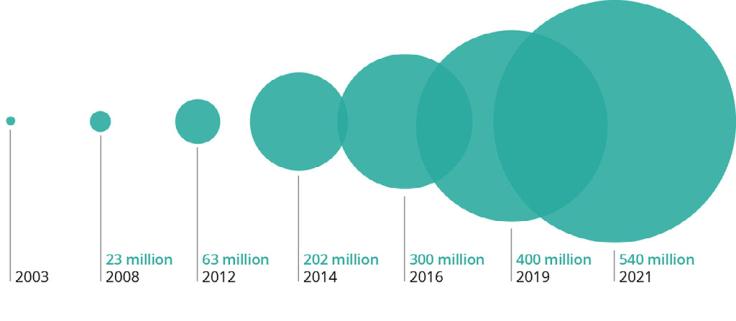
Even as over 540 million people have now been reached by programs informed by J-PAL researchers’ evaluations, demand for policy guidance is only increasing.
Over the next year, we will continue to expand our policy engagement through both path-to-scale and at-scale evaluations, and strengthen the capacity of J-PAL’s regional offices to lead these efforts. For example, J-PAL Europe’s Innovation, Data, and Experiments in Education (IDEE) Initiative launched this year to strengthen access to administrative data and build policy partnerships in France, while J-PAL South Asia continues to expand its engagement with state governments, including Tamil Nadu, to strengthen data systems and contribute to a strong culture of evidence use.
If there is another lesson to be learned from the pandemic, it is the power of nature in our lives. Climate change continues to threaten us all, but vulnerable communities in low- and middle-income countries are disproportionately affected. The King Climate Action Initiative (K-CAI) enables us to examine how climate change threatens to reverse decades of progress on poverty and how its effects can be mitigated. This year, K-CAI funded more than twenty projects across climate change adaptation, pollution reduction, energy access, and mitigation, totaling over $3 million.
In 2022, we plan to expand our work in three exciting new research areas: social protection, anti-discrimination, and misinformation. We will launch a new Social Protection Sector to identify the most effective programs and policies that provide financial assistance to low-income families, insure against economic shocks, and break poverty traps. We are scoping a cross-sectoral Anti-Discrimination Initiative, which will investigate how to help individuals overcome their biases, promote inclusionary policies, and address systemic inequalities. And our Governance Initiative is planning to expand its research to uncover strategies to counter systemic misinformation threatening democracy.
As we launch these new initiatives and expand our policy efforts, our regionally-grounded research network is more central than ever before. Over the last year we expanded our efforts to support researchers based in low- and middle-income countries, ranging from the JOI African Scholars Program to the Indian Scholars Program to J-PAL Southeast Asia's efforts to support Indonesian researchers. We improved our affiliate and invited researcher search processes, resulting in a more diverse 2021 class of researchers by gender, race, and location. We strengthened our systems to promote diversity, equity, and inclusion in hiring as well, creating more accessible resources for job seekers and continuing blind hiring assessments. More work remains to be done, and we are committed to expanding these efforts in 2022.
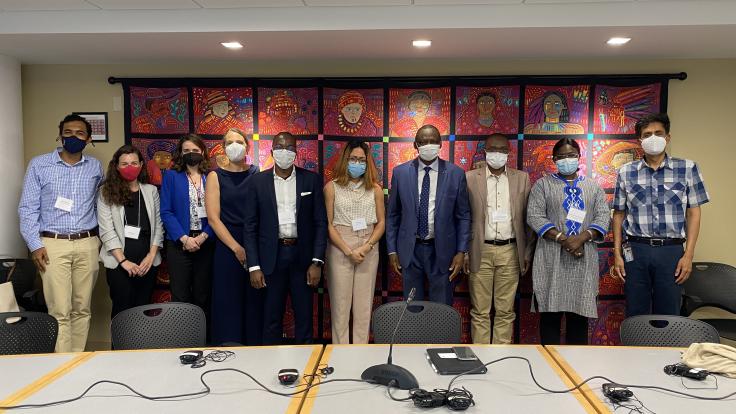
Even as Covid influenced our work last year and continues to inform our focus areas, it is heartening to see glimmers of normalcy returning to parts of the world. After eighteen months of Zoom calls, we welcomed our Global (head) office colleagues back to the office in September. This return coincided with our first in-person visit from a government delegation to discuss plans for an evidence-based innovation center in Burkina Faso. Many regional office teams have started returning to their offices as well, though not all have that ability yet due to persisting and frustrating inequities in vaccine access.
As we look ahead to 2022, facing even more uncertainty from the Omicron variant, we remain committed to our mission of using evidence in the fight against poverty, and we thank you so much for your continued support. Our partners and funders have been instrumental in pushing our mission forward despite pandemic setbacks, and your support will continue to be critical in the long road to recovery that lies ahead.
Read the 2021-22 edition of "Improving Lives Through Evidence."
